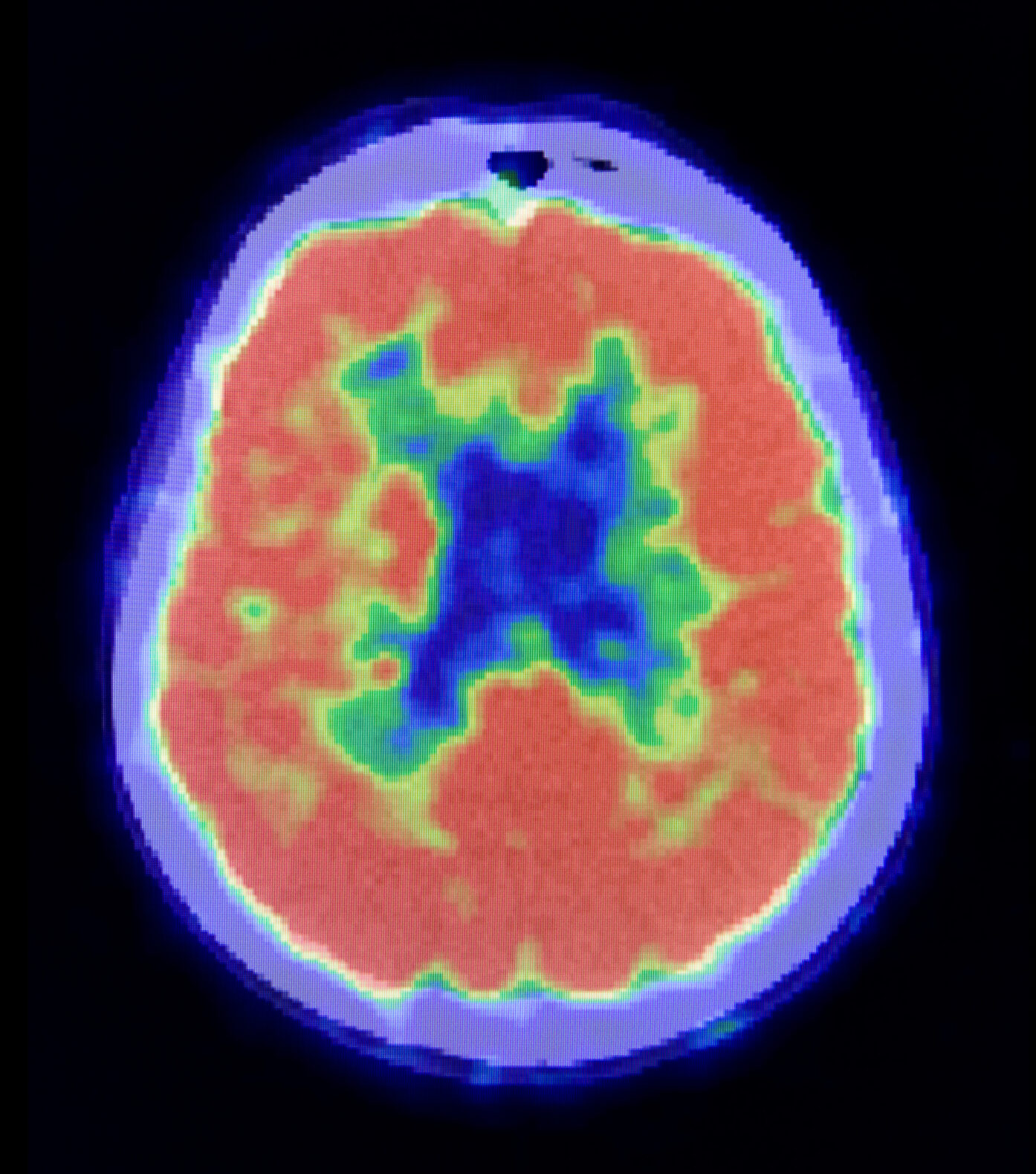The Yassine team is a multidisciplinary group that combines expertise in lipid metabolism and genetics with imaging and clinical trial infrastructure. Our goal is to expand the role of ApoE4 in lipid metabolism relevant to Alzheimer’s disease (AD).
The first focus of our lab is in investigating how ApoE interacts with ABCA1 to form an HDL particle in the brain. We identified that the function of the cholesterol transporter ABCA1 was lower in patients with AD in CSF compared with persons who are not cognitively impaired (J Am Heart Assoc, 2016). We are investigating the interactions of ABCA1 with ApoE proteins, in addition to detailed characterizations of brain and plasma HDL particles (Project 1).
The second focus of our lab is on investigating how ApoE4 affects DHA transport to the brain. We found a strong relationship of lower serum DHA to greater amyloid deposition in cognitively healthy older adults (JAMA Neurology, 2016). Then, using [11C]-DHA PET, we showed that brains of young cognitively healthy APOE4 carriers had more uptake of plasma DHA (Alzheimer’s Research & Therapy, 2017). These data indicate that cognitively normal ApoE4 carriers have deficits of DHA before the onset of AD and may be more vulnerable to dietary DHA deficiency. These findings suggested a role for DHA supplementation in the prevention (JAMA Neurology 2017). A pilot study (Alzheimer’s Association, NIRG-15-361854) showed that APOE genotype altered CSF DHA levels after supplementation. These findings enabled us to obtain NIA funding for a double-blind placebo-controlled clinical trial of DHA in healthy elderly stratified by APOE status (Project 2 and Project 3).
Research and Innovations
Biomarkers of ABCA-1 Functions in Alzheimer’s Disease
Lorem ipsum dolor sit amet, consectetur adipiscing elit. Ut elit tellus, luctus nec ullamcorper mattis, pulvinar dapibus leo.

DHA Brain Delivery by APOE Genotype (Clinical)
Lorem ipsum dolor sit amet, consectetur adipiscing elit. Ut elit tellus, luctus nec ullamcorper mattis, pulvinar dapibus leo.

DHA Brain Delivery by APOE Genotype (Animal)
Lorem ipsum dolor sit amet, consectetur adipiscing elit. Ut elit tellus, luctus nec ullamcorper mattis, pulvinar dapibus leo.

Brain Omega-3 Program
Lorem ipsum dolor sit amet, consectetur adipiscing elit. Ut elit tellus, luctus nec ullamcorper mattis, pulvinar dapibus leo.

Brain HDL Program
Lorem ipsum dolor sit amet, consectetur adipiscing elit. Ut elit tellus, luctus nec ullamcorper mattis, pulvinar dapibus leo.

Diabetes Brain Program
Lorem ipsum dolor sit amet, consectetur adipiscing elit. Ut elit tellus, luctus nec ullamcorper mattis, pulvinar dapibus leo.

Biomaker Discovery
We’re uncovering biological markers for Alzheimer’s disease and building a pipeline of potential treatments that address inflammation in the brain. First in line is a new drug that has shown promise in lab studies

Imaging Innovation
Imaging techniques under development at the Center for Personalized Brain Health may profile Alzheimer’s risk and inform interventions. We’re looking for early brain changes, well before damage starts — and decades before symptoms appear.

Digital Tools for Early Detection
USC biomedical researchers and engineers are collaborating to develop and deploy advanced technology for early detection. Measuring lapses in the brain’s internal GPS could enable people to get help before Alzheimer’s memory loss sets in.

Drug Development
The USC Center for Personalized Brain Health is on the cutting edge of Alzheimer’s treatment with its breakthrough drug, BRI-50054. Designed for APOE ε4 carriers, this promising compound boosts brain health by improving lipid processing and reducing inflammation. Born from research into omega-3 fatty acids and the enzyme cPLA2, BRI-50054 is set to transform the future of Alzheimer’s care, offering hope for better cognitive function and a brighter tomorrow for those at risk

Research Highlights
The USC Center for Personalized Brain Health is leading exciting breakthroughs in Alzheimer’s research. By uncovering key factors like brain metabolism and inflammation, they’re developing personalized treatments, such as targeting lipid imbalances and brain energy deficits, that offer new hope for preventing cognitive decline and transforming lives.



